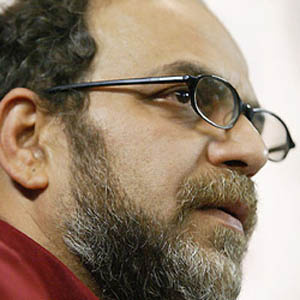Iran’s nuclear issue has no certain speaker
Interview with Mahmud Shamsol-Vaezin, Middle East expert

Last Friday, Ali Larijani, spokesperson of the Iranian parliament, warned the Arab countries not to meddle in Iran’s nuclear issue and not to risk jeopardize their dignity.
Middle East expert Mahmud Shamsol-Vaezin talked with Iranian Diplomacy on this event:
The first point is U.S. success in ruining the relations between Iran and Arab countries of the region, and making the bad relations worse between Iran and some other countries. Vigilance calls us to avoid such traps, but unfortunately we do not pay attention and quickly fall into the loopholes made for us by others.
He continued: the second point is that Iran’s nuclear issue must be kept intact from internal struggles between different groups, especially as we are approaching the elections. Our nuclear program is a national issue clearly beyond inter-party matters and Iranian officials must know that any comment on this issue has significant impact on national security. If our remarks be problematic, the whole nuclear issue will face severe problems.
He also added that: Iran’s regional and global rivals are waiting for internal schism on the nuclear issue, so we must act vigilantly on this matter. In Iran, it is not clear who is the main speaker on the nuclear issue. Naturally head of the National Security Council bears the responsibility, and it is worrying that Mr. Larijani, as former head of this council, preserves the right for himself to talk about the nuclear issue after leaving office. This increases competition among officials in charge of the nuclear issue and other domestic politicians, and we will witness significant contradictions in their remarks.
Shamsol-Vaezin mentioned a third point: the relations between Iran and Arab countries of the Persian Gulf are unstable enough, and an inconsiderate remark can push Arabs towards our opponents. While new fronts and new views on Iran’s nuclear capability are forming in Obama’s age, such thoughtless remarks about Arab countries strain Iran-Arab relations and are of no good.
The fourth point, according to Shamsol-Vaezin, was that since the second term of George W. Bush’s presidency, United States has followed a policy of dividing countries of the region into radical and moderate states to put Saudi Arabia, Jordan and other countries against the radical axis, i.e. Iran, Syria and organizations such as Hamas. The strategic goal of this has been to preclude any convergence among Iran, Egypt and Saudi Arabia as three main regional forces. Unfortunately, some stances taken by Iran helped in widening the gap. We should know in what situation we are and we must try to bridge the gap to achieve convergence, and ultimately a joint policy to shape a regional front, free from extra-regional interventions.
This is a successful strategy that considers Iran’s national interests, Shamsol-Vaezin believes. He also mentions a fifth point: During the last three decades, Iran hasn’t been successful in creating stability in any domain of its foreign relations and that is upsetting. During this period, our international relations have been turbulent, and this is a reflection of non-existence of macro-strategies in our international relations.
He continued: Iran can’t name a country with which it has had stable relations during the last three decades. I mean countries with which we have mutual relations. It’s all sinuous, and that creates distrust among the international community about Iran and the consistency of its policies.
Adding that this distrust concerns experts and undermines Iran’s ability in confronting global developments and crises, the Middle East expert added that: Iranian experts must be careful about not showing hasty reactions. Arab countries of the region are Iran’s neighbors at any rate; and because of history or force, we have to co-exist. We mustn’t frighten Arab countries, since that would naturally mean pushing them towards making strategic pacts with Iran’s opponents, i.e. Western countries. I wouldn’t be exaggerating if I say Iran is indirectly the culprit for presence of U.S. navy in the region.
He concluded that Iran should stop following its current policy and start using its potential to establish long-term stability in regional and international relations.

